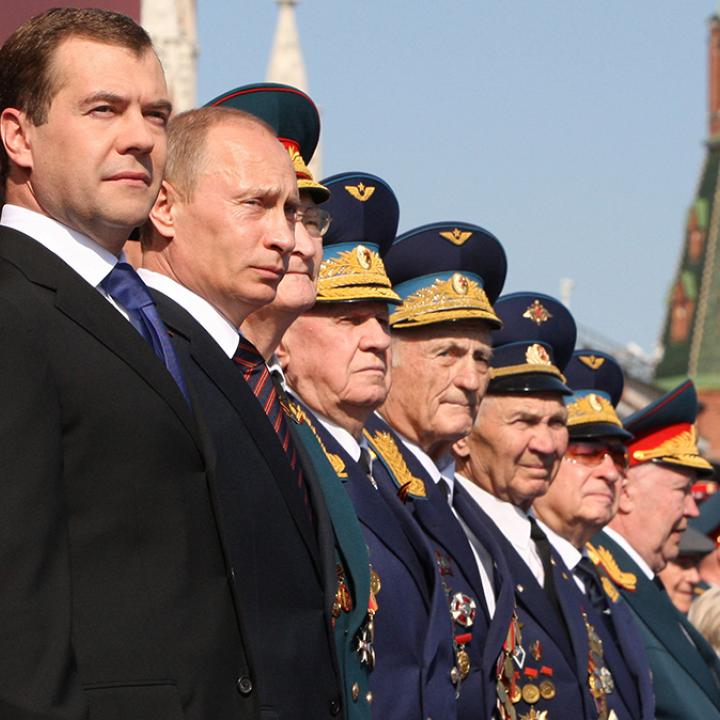

In the April 14 talks in Istanbul, Russia demonstrated once again that it could be a team player. But Moscow's cooperative front with the other members of the P5+1 group originates not in a pure desire to resolve the Iranian nuclear issue but rather in a bid to gain leverage in relations with Washington. So far, the Russian government is satisfied with the state of these relations, a situation that probably will allow for further productive work when the P5+1 meets again in May in Baghdad.
BILATERAL ISSUES BEYOND THE NUCLEAR PROGRAM
For the Russians, the Iranian nuclear program is traditionally overshadowed by other issues in relations between the two countries. Over the last two decades, Tehran has proved itself to be Russia's friend in times of need, by helping promote peace and stability in the Caspian littoral and in Central Asia, limit the presence of third countries in regional affairs, counteract human- and drug-trafficking activity, deter the spread of internal revolutions, and combat terrorism. Moscow also has certain economic interests in Iran. As a result, little room is left to confront Tehran over the nuclear issue.
THE "IRAN CARD" IN U.S.-RUSSIA RELATIONS
The items just discussed help elucidate why Moscow considers the nuclear issue to fall under U.S.-Iran relations rather than Iran-Russia relations. And over the past twenty years, Russia has played the Iran card for influence in its dealings with Washington. At times of both rapprochement and high tension with the Americans, Russia has either frozen or boosted cooperation with Tehran. Thus, in 1995, in the wake of reconciliation with Washington, Moscow signed the Gore-Chernomyrdin agreement, which obliged the Russian government to stop implementing contracts on exports of military supplies to the Islamic Republic. By contrast, when tensions rose between the United States and Russia in the mid-2000s, the Russia-Iran dialogue warmed correspondingly. In 2006-2008, Moscow not only intensified contacts with the Islamic Republic in the military sphere but also tried to compensate for previous losses imposed by the Gore-Chernomyrdin agreement.
The rules of this game are simple. Moscow will be more flexible and ready to discuss the Iranian problem if U.S. authorities demonstrate a constructive approach to resolving issues irritating the Russians. In other words, dialogue construed by the Russians as constructive on the following issues (and others) has a high probability of reducing anti-Americanism in Russian thinking and prompting Moscow to revise its views on Iran:
- U.S. antimissile defense in Eastern Europe
-
The presence of third powers in the Caucasus and Central Asia
-
Limitation of NATO's advance to the east
- Construction of oil and gas pipelines seen as threatening to the economic interests of Russian elites
Given this background, it is probably no coincidence that Sergei Rybakov, the deputy minister of Russian affairs, is involved in both decisionmaking on the Iranian nuclear issue and in Russian talks on U.S. antimissile defense in Eastern Europe.
In turn, it is no surprise that, on March 26, 2012, when outgoing Russian president Dmitry Medvedev received assurances from President Obama that U.S. authorities were open to continued discussions of a "win-win" resolution on antimissile defense, the Russian leader immediately declared the current level of U.S.-Russia relations to be the "highest over the last decade." He also stated Russia's readiness to cooperate with the United States in settling current crises involving Syria, Iran, and North Korea. Russia's subsequent participation in the preparations for the Istanbul meeting proved that these were not mere words.
IS IRAN'S NUCLEAR PROGRAM A THREAT?
From the Russians' perspective, the Iranian nuclear program itself does not represent a serious threat. Yet a radical Islamist regime in possession of a nuclear weapon of mass destruction (WMD) is unacceptable to Moscow. And the Russian authorities have never concealed their view that a nuclear-armed Islamic regime on Russia's southern flank could be far less cooperative in Central Asia and the Caspian basin and could undermine Moscow's influence in these ex-Soviet regions. Furthermore, a nuclear-armed Iran could destabilize the situation in the Middle East. Such fears explain why, immediately after the secret Iranian program was disclosed in 2002, Moscow revised certain principles underpinning its cooperation with the Islamic Republic. By 2005, it had signed a number of agreements with Tehran guaranteeing the return of spent nuclear fuel from the Bushehr power plant to Russia and, in general, limiting cooperation with Iran. Finally, Russia rejected all Tehran's attempts to obtain licenses for the production of Russian weapons in Iran.
Still, Moscow does not see urgent time pressure for talks with Iran. The Russian government and its experts are unsure whether authorities in Tehran have decided to create a nuclear weapon, but they are sure that the Iranians, at least in the medium term, would be unable to produce such a weapon, even if they wanted to do so. They view many of the statements by Iranian officials as nothing but bravado aimed at improving bargaining conditions in their dispute with the West.
WHAT'S NEXT?
In all likelihood, the degree of Russian constructiveness in Baghdad will be determined by events in Europe rather than in the Middle East. Thus, on April 17, Rybakov signaled to the United States and NATO that Moscow is seriously concerned that antimissile defense in Eastern Europe remains far from settled. Whether this gesture was a simple reminder or a sign of impatience, and whether it will influence the Russian position on Iran, is unclear. However, odds are good that Moscow will trust the promises made by Obama in Seoul that he will be more flexible on European missile defense after the presidential election. In this case, Russia will not play the role of spoiler in Baghdad. Nevertheless, Moscow will certainly make corrections in its policy after January 2013 if the issue remains unsettled.
Nikolay Kozhanov is a visiting fellow at The Washington Institute. From 2006 to 2009, he served as an attache at the Russian embassy in Tehran.


